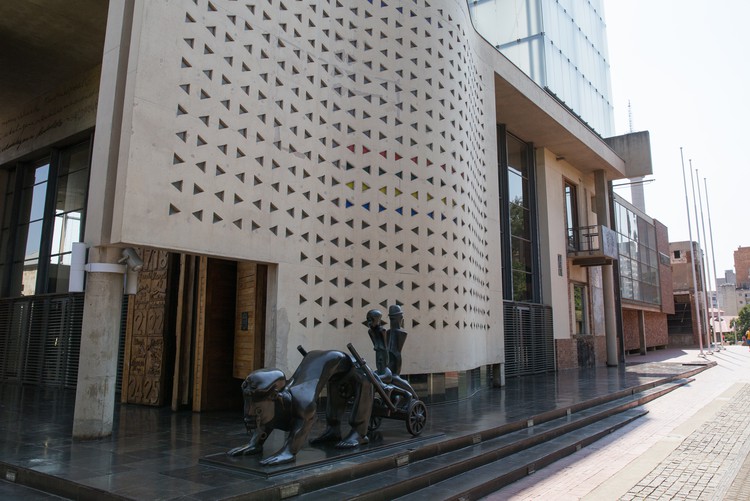
12 December 2023
The Constitutional Court has struck down provisions in the Refugees Act which dictate that asylum seekers who have not renewed their visas within a month of expiry are considered to have permanently abandoned their applications. Archive photo: Ashraf Hendricks
In a unanimous decision the Constitutional Court has struck down provisions in the Refugees Act which dictate that asylum seekers who have not renewed their visas within one month of the date of its expiry are considered to have permanently abandoned their asylum applications.
Acting Judge Ashton Schippers, writing for the court, said the provisions and a linked regulation, violated a number of constitutional rights in that the “deemed abandonment” provisions meant asylum seekers were cut off from essential services. These included access to banking, education and healthcare.
They also exposed asylum seekers and their children to the constant risk of arrest, detention and deportation.
“All this, simply because a visa has not been renewed,” said Judge Schippers.
The matter came before the apex court in what became unopposed confirmation proceedings of a Western Cape High Court ruling earlier this year that the relevant provisions in the Act were unconstitutional.
The application was launched by the Scalabrini Centre of Cape Town, supported by the Consortium for Refugees and Migrants South Africa (CoRMSA), admitted as an amicus curiae.
The minister and director-general of Home Affairs opposed the application in the High Court, claiming the administration of visas placed a huge burden on the department’s officials because a substantial number of applicants were not genuine asylum seekers. The provisions in the Act, it was argued, were implemented to reduce the backlog of inactive cases and ensure that asylum seekers pursued their applications to completion.
However, in the Constitutional Court, they abandoned their defence, conceding that South Africa was obliged to receive refugees in accordance with international laws and the principle of non-refoulement (the practice of not forcing refugees or asylum seekers to return to a country in which they are liable to be subjected to persecution) was enshrined in the Act.
In spite of this concession, the court still needed to determine the matter.
Judge Schippers said refugees were an “especially vulnerable group” and their plight called for compassion.
He said the provisions in question disregarded the protection of asylum seekers from refoulement, because they could be expelled or returned to the countries from which they fled without a proper inquiry but simply because they had not renewed their visas.
“As stated in the applicant’s submissions in this court, in those countries they may face torture, imprisonment, sexual violation and other forms of persecution, even death. And this, without any consideration of the merits of their claim for asylum,” Judge Schippers said.
The provisions imposed a double penalty; they not only excluded determination of the merits, but prohibited any re-application for asylum, the judge said.
CoRMSA had presented evidence of 394 asylum seekers whose applications had been deemed abandoned and had been treated as illegal foreigners.
Children, he said, were particularly at risk “because of bureaucratic circumstances beyond their control”.
There had been evidence about one child who had not been able to attend school for the 2020 academic year, and another had not been able to register for matric.
“These subsections are irrational and arbitrary. They serve no legitimate government purpose.
“The merits of the claims for asylum are never considered,” Judge Schippers said.
“In any event, the respondents [the minister and the DG] wrongly assume that most asylum seekers have no valid claims to asylum. This assumption violates the core principle of refugee law that asylum seekers must be treated as presumptive refugees until the merits of their claim have been finally determined through a proper process.
“The evidence shows that the non-renewal of visas – often the consequence of long queues, the financial burden of getting to reception offices and having to take time off work – has not caused the backlog of asylum applications, nor imposed a significant burden on the department,” Judge Schippers said.
The apex court confirmed the High Court’s declaration of unconstitutionality, backdated to 1 January 2020, the date on which the relevant provisions came into operation.